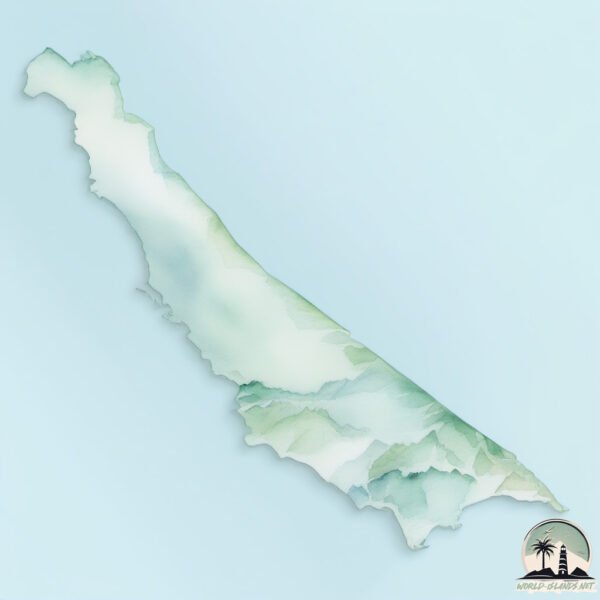San Clemente

Welcome to San Clemente, a Dry island in the North Pacific Ocean, part of the majestic Pacific Ocean. This guide offers a comprehensive overview of what makes San Clemente unique – from its geography and climate to its population, infrastructure, and beyond. Dive into the details:
- Geography and Size: Explore the island’s size and location.
- Climate and Weather: Weather patterns and temperature.
- Topography and Nature: Uncover the natural wonders of the island.
- Infrastructure and Travelling: Insights on reaching, staying, and making the most of your visit.
- News and Headlines: Latest News.
Geography and size of San Clemente
Size: 147.2 km²
Coastline: 83.1 km
Ocean: Pacific Ocean
Sea: North Pacific Ocean
Continent: North America
San Clemente is a Large Island spanning 147 km² with a coastline of 83 km.
Archipel: Channel Islands of California – Located off the coast of Southern California, these islands are known for their unique ecosystems and as a national park.
Tectonic Plate: Australia – A major tectonic plate covering Australia, New Zealand, and parts of the Indian and Pacific Oceans, known for its relative stability and occasional seismic activity.
The geographic heart of the island is pinpointed at these coordinates:
Latitude: 32.90021711 / Longitude: -118.485556
Climate and weather of San Clemente
Climate Zone: Dry
Climate Details: Cold Semi-Arid (Steppe) Climate
Temperature: Cold
Climate Characteristics: Characterized by hot summers and cold winters, this climate is typically found on the edges of continental zones. It receives sufficient precipitation to avoid desert conditions.
Topography and nature of San Clemente
Timezone: UTC-08:00
Timezone places: America/Los_Angeles
Max. Elevation: 560 m
Mean Elevation: 232 m
Vegetation: Shrubland
Tree Coverage: 16%
The mean elevation is 232 m. The highest elevation on the island reaches approximately 560 meters above sea level. The island is characterized by Plateau: Elevated flatlands rising sharply above the surrounding area, with a maximum elevation over 500 meters but a mean elevation less than 300 meters, forming unique highland areas on islands.
Dominating Vegetation: Shrubland
Dominated by shrubs and small bushes, these areas are typical in dry, rocky, or sandy environments, as well as in regions with poor soil fertility. San Clemente has a tree cover of 16 %.
Vegetation: 9 vegetation zones – Very Highly Diverse Island
Islands in this range are ecological powerhouses, showcasing a wide array of vegetation zones. Each zone, from lush rainforests to arid scrublands, coastal mangroves to mountainous regions, contributes to a complex and interdependent ecosystem. These islands are often hotspots of biodiversity, supporting numerous species and intricate ecological processes.
Infrastructure and Travelling to San Clemente
Does the island have a public airport? no.
There is no public and scheduled airport on San Clemente. The nearest airport is Long Beach Airport (Daugherty Field), located 99 km away.
Does the island have a major port? yes.
San Clemente is home to a major port. The following ports are situated on the island: WILSON COVE.
The mean population of San Clemente is 0 per km². San Clemente is Uninhabited. The island belongs to United States of America.
Continuing your journey, Santa Catalina is the next notable island, situated merely km away.
San Clemente Island, California: Rugged Beauty and Hidden Secrets of the Channel Islands



United States of America is classified as Developed region: G7: Group of Seven – Major advanced economies, including Canada, France, Germany, Italy, Japan, the United Kingdom, and the United States. The level of income is High income: OECD.
News – Latest Updates and Headlines from San Clemente
Stay informed with the most recent news and important headlines from San Clemente. Here’s a roundup of the latest developments.
Please note: The data used here has been primarily extracted from satellite readings. Deviations from exact values may occur, particularly regarding the height of elevations and population density. Land area and coastline measurements refer to average values at mean high tide.
